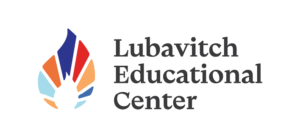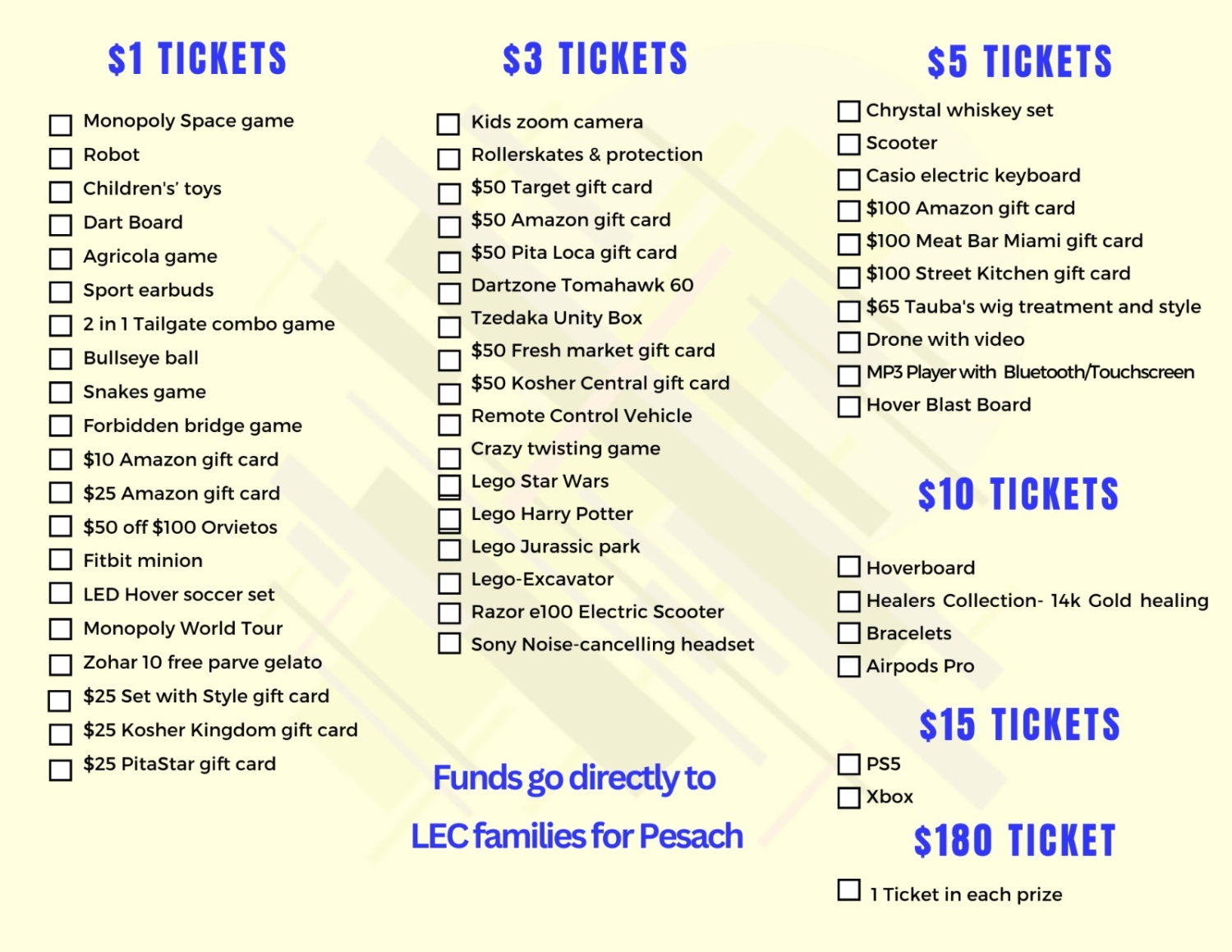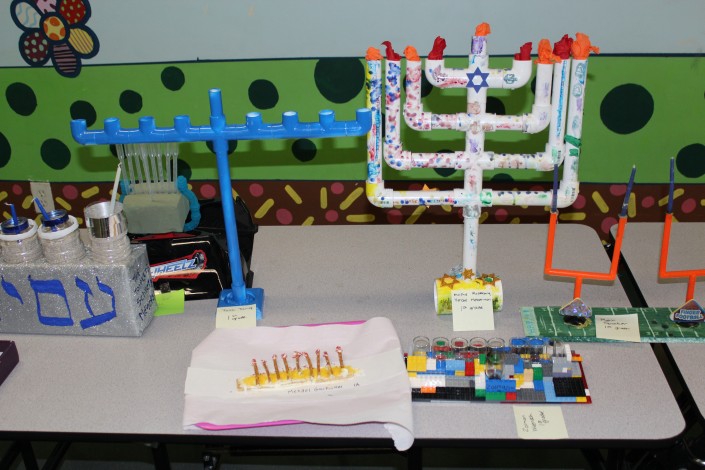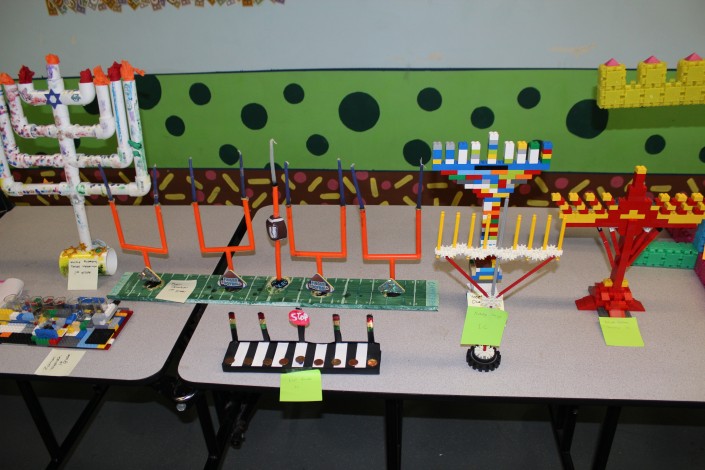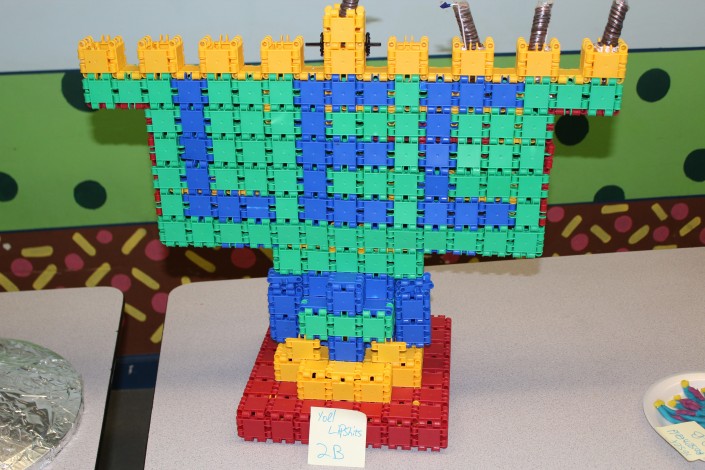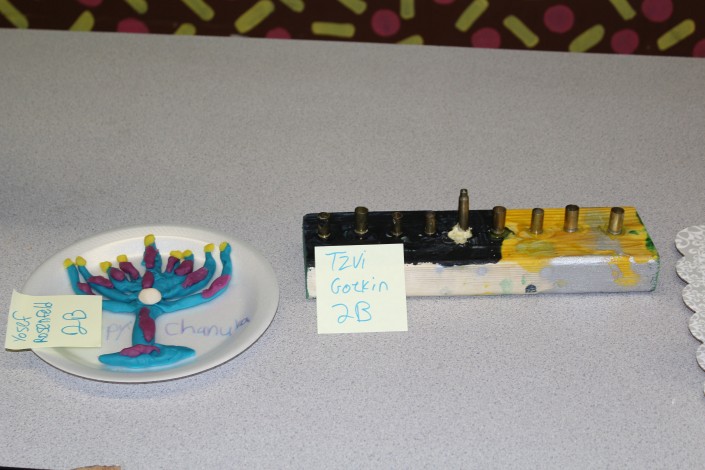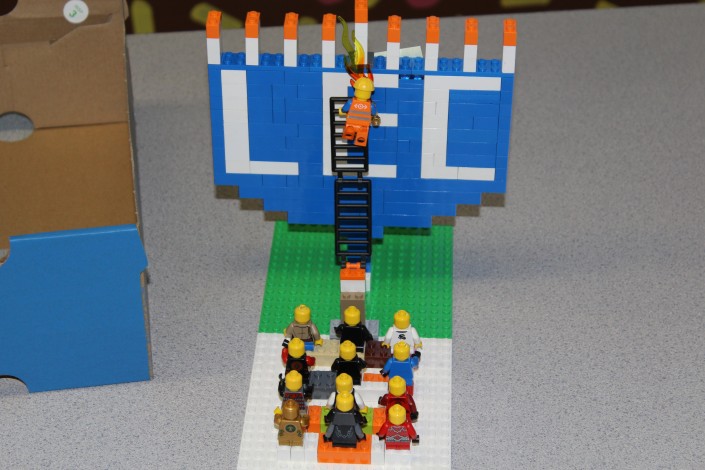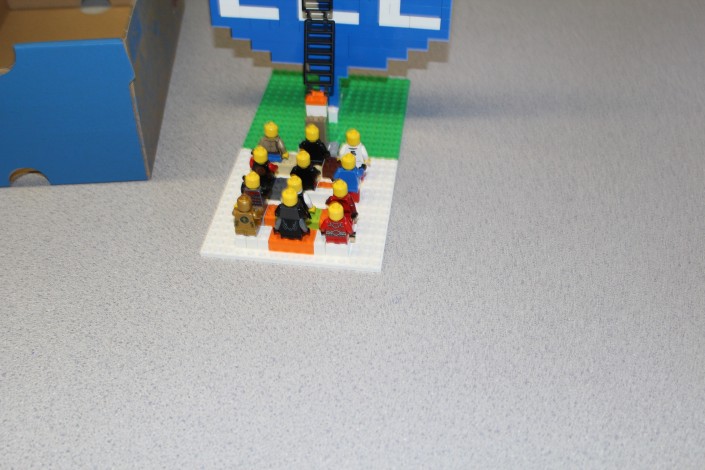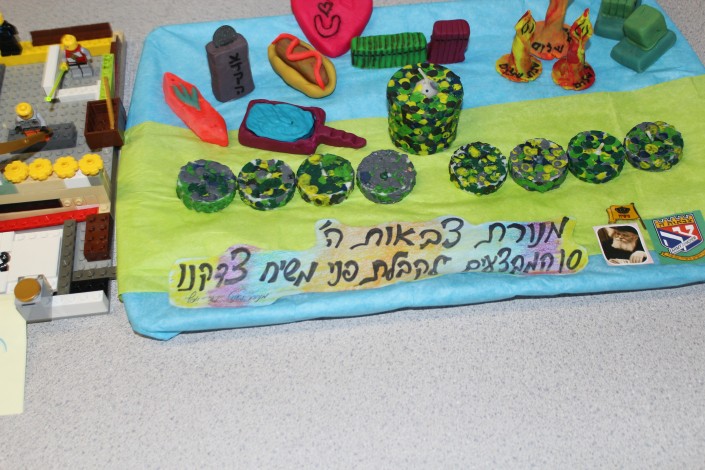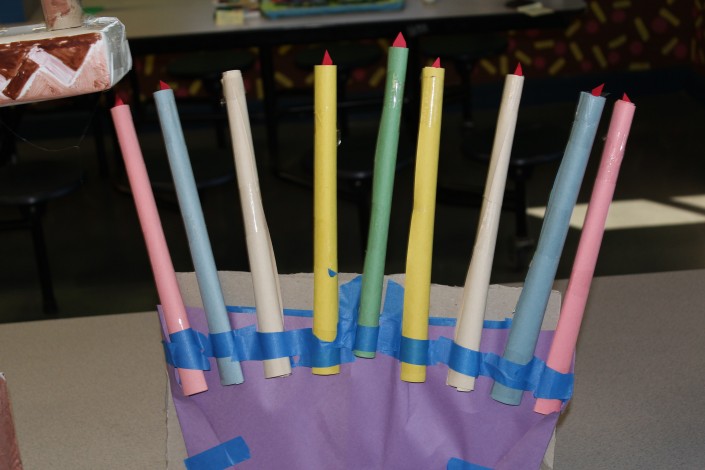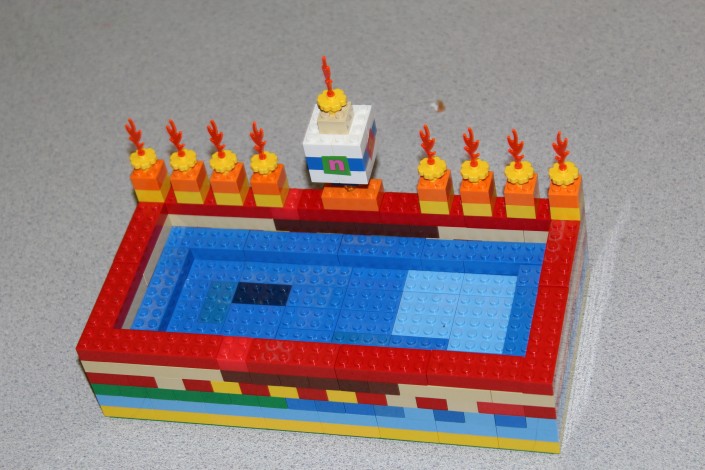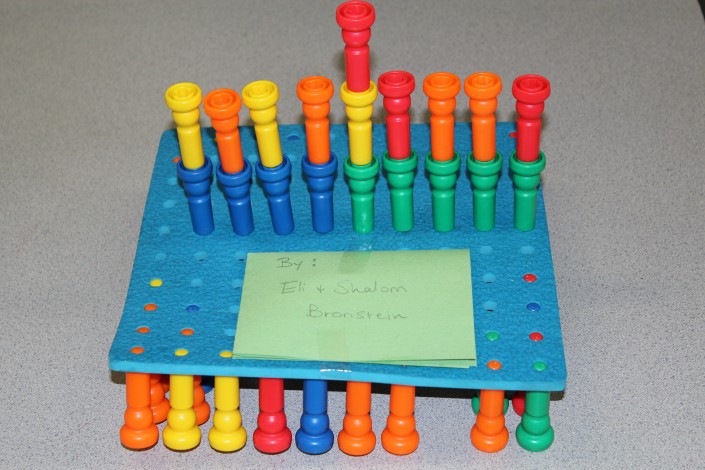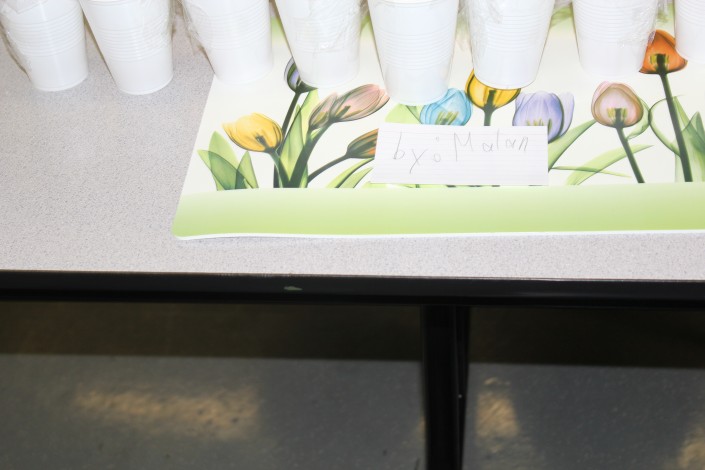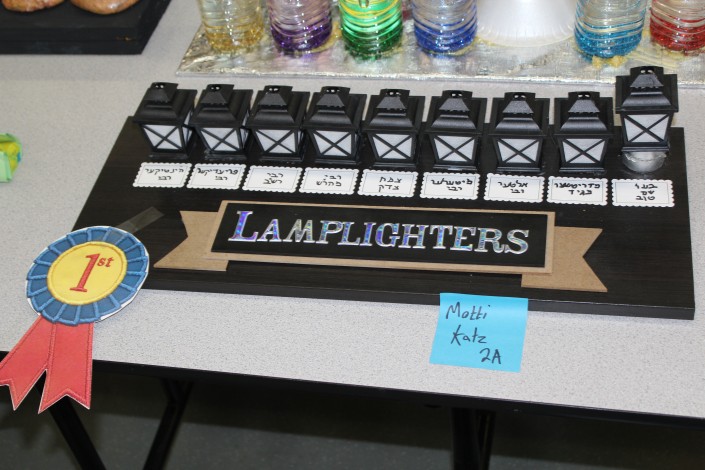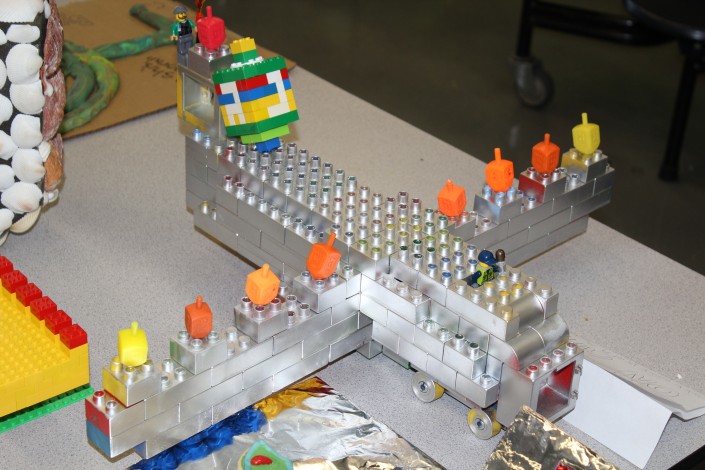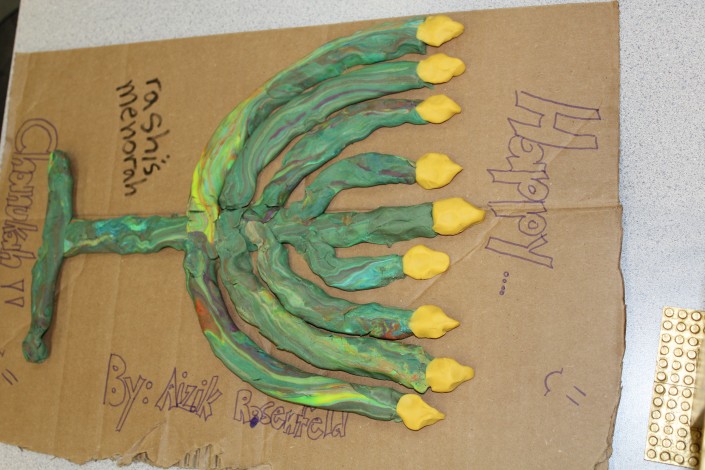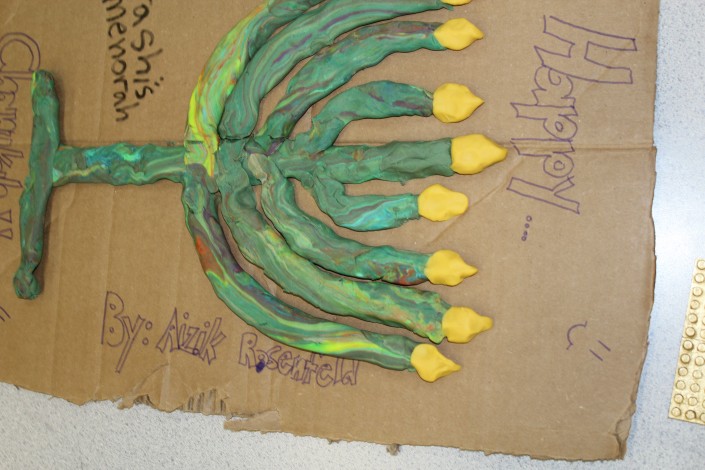Family Melave Malka 5778
/in Boys Special Programs, Elementary Boys, Frontpage Article, UncategorizedDr. Ira S. Barton Aquatic Center Groundbreaking
/in Bais Chana, Elementary Boys, Elementary Girls, Frontpage Article, Klurman Mesivta, PreschoolInterview with Mr. Daniel Jacoby
/in Elementary Boys, Elementary Girls, Frontpage Article, UncategorizedLubavitch Educational Center is pleased to welcome Mr. Daniel Jacoby as Principal of the Elementary School General Studies Department. New to our community and to South Florida, we decided to sit down with him and find out how he came to pursue a career in education, his views on students, teachers and parents, and what he does for relaxation.
Let’s start out by asking you a little bit about your background. Where are you coming from?
I’ve been teaching in academics and non-academics for about 25 years. I started out in the early 1990s teaching martial arts. Somewhere around 1995 there was a big explosion over ADHD [Attention Deficit Hyperactivity Disorder], and many of the doctors were prescribing Ritalin. As an alternative way of dealing with the condition, many parents were putting their kids in a martial arts program, and I was the guy who could teach these kids.
Do you mean instead of Ritalin?
Right, or in conjunction with it, to try to get them off of it. I was able to work with these types of kids, as well as those with learning disabilities, and even those who would now be considered on the autism spectrum. I also worked with children with Downs Syndrome. I ended up being a mentor to kids who were just struggling, and I was actually a mentor to those who were gifted.
From there I moved into teaching in schools and eventually getting my Master’s Degree in Special Ed. I also have a Bachelor’s Degree in Philosophy. Afterwards I attended the University of Texas in Austin, which is one of the top education schools in the country, working toward a PHD in Education or Special Ed. To get accepted there was the opportunity of a lifetime. I was there for three years, but we now had children and wanted to live in a frum community for the sake of our family. I may continue to pursue a doctorate program in Miami, but at this moment I’m not sure.
At different times in my life I have been a regular classroom teacher. I’ve taught English as a Second Language for the Satmar community, and was a Special Ed alternative teacher for Darchai Menachem in Crown Heights. I was also the Secular Studies Principal for one year. While there we created interventions to respond to various types of learning and behavior issues.
Why did you feel that the field of education was for you? Was it a personal calling?
When I was 13 years old and involved in martial arts I taught more than 200 hours a year, more than any other person in the entire school. It was just something that I loved. In my whole life, no matter what I was doing, I always ended up teaching. Even if it doesn’t have anything to do with academics, when I see someone struggling, I’m the one to go over and say, “Hey, do you need any help?” It’s just something that I’ve always done and have always liked to do. Even at times when I thought I would do something else, I’ve always found my way back to teaching.
What attracted you to Florida? Were you looking to come to a warmer climate?
My wife Chaya is from Brazil. She grew up in Rio and her family used to daven at the Chabad shul there. We met in Crown Heights. Being from Rio, she couldn’t take the cold, so I promised her that after a certain point I would take her to Florida. That and a frum community were really the main reasons for coming here.
When you were seeking a position in a school, what signs were you looking for that would indicate to you it’s a good shidduch?
The main thing is that I wanted to be in a Jewish environment. I have a four- year-old and a one-year-old who need to be raised in a Jewish community. I was seeking a day school and found some openings. Then I started to consider where am I going to put my son? So I was talking to Rochel Levertov, the Chabad shlucha from Austin, and she said, “Put your son in a Chabad school. One thing your son will learn is to love Torah. Forget everything else. He’ll walk out loving Torah and that’s what you want.”
So I just called the school—it was one of a few schools that I called first, before sending in a resume. Eventually I got connected with Mrs. Dalfin. I told her my background and what I was looking for, and she told me to send my resume. A few days later I got a call from her. “Are you interested in becoming our General Studies principal?” And I said, “Yes.”
Did you have much experience at that point in elementary school curricula?
At Darchai Menachem I built a curriculum map based on core standards. I’m very comfortable with curriculum mapping, and I built interventions into my curriculum mapping. I am very comfortable with standards, and how we unpack them, and how we analyze them. Even now I’m going to be building 8-week curriculum maps for all my grades that clearly define what skills have to be taught and in which week they have to be taught.
After Mrs. Dalfin offered me the position they flew me down here in April. I went through a week of interviewing, visiting classes, speaking with teachers.
What skills do you feel you’re bringing to the job?
The number one skill is being able to teach our staff the necessary skills to succeed, to meet the academic needs of the students.
Right now our teachers are dependent on curriculum books. They go through the curriculum and teach what they’re supposed to teach, but that’s it. We don’t want that. What we want are skills to be taught, no matter what we’re using in the classroom, and we need to make sure we are checking the skills through assessments and that we have some sort of data-driven instruction going on. So I’m trying to bring data-driven instruction into the school for the general studies department. I know they’re already doing this in the Hebrew department, and I want to mirror that. We’re going to sit down and go through every single student, and we’re going to go through where they are holding. Our conviction that every child has to learn is a very big part of this.
Yeshiva education, perhaps with Chabad more than with other groups, is less career oriented, than in producing a child who will have a lifetime commitment to Torah and mitvos and will serve as a proud and active member of his or her community. As a General Studies principal, how do you perceive your role in this approach?
Our goal is to provide our students with the skills to succeed—no matter what choices they make in the future. What is debatable is what higher education or career an individual chooses, and our schooling needs to support that decision. If you’re going to own a business, writing apps, selling sunglasses on the Internet, or going to college, the skills they acquire now must support everything. Even the child of a shaliach is going to have to read a business contract, he has to be able to communicate when sending out emails to his community, he has to be able to fundraise—these are all important things that one needs to learn. So my job as General Studies principal is to understand a child’s path and give him the skills to succeed, for whatever path he chooses to take.
What do you think should be the most important goal of education?
That’s a big question. At a Lubavitch school I think the most important priority is that our children are on the right derech. That we teach them love and compassion while being strict—it’s called “warm” strict. We want them to be frum Jews who live yiddishkeit the way the Rebbe wanted them to live, while being a mensch at the same time. That’s really the goal of any education.
From my part, there are certain things I will not bring into the school because they’re not going to meet that standard. Certain books, for example, will never be brought in. In our school we need to make sure that our secular education maintains the standards expected of the Rebbe’s school. Even though some students will eventually continue on to college, while they are in our school it is our responsibility to ensure they are receiving the type of education the Rebbe wanted.
A school this size—and growing— is filled with challenges everywhere. Are you nervous?
There are two sides to this challenge: supporting and managing the teachers. When I accepted this position I knew what was involved and what would be the challenges. If I have 15, 16 teachers, that’s who I have to concentrate on. My goal is to get everyone working efficiently. I train my staff to be leaders in the classroom. They have the ability to argue with me. I encourage them to argue with me, to make a point about why they want to do what they’re doing in the classroom. I look for people who I feel can become leaders, so I can start training them and don’t have to worry about their class per se. So that’s how I look at it. Yes, I’m involved with the 600 students, but teachers are everything. Curriculum has about a 5% effect on education. Either it improves or lowers academic success, but in a very small way. But the quality of the teacher has a huge effect on a successful outcome. The better the teacher, the better the classroom, the better the learning, and the easier my job.
Rabbi Korf related to me that his father, Rabbi Abraham Korf, had told him that the Rebbe wanted the General Studies department to be on a high level. We would attract a wider circle of students, not just from the Lubavitch community, with the goal of becoming the foremost Orthodox school in South Florida.
When hiring teachers, what qualities are you looking for?
I look for leaders. I want people who are going to be passionate about working with our kids, who are not just doing it for the money. People like me when I was a teacher who will do what it takes . . . the attitude has to be that every child has to learn. No one can walk from that class if that child is not learning. I’ve heard people say about a certain type of child, “He can’t learn. Just leave him, as long as he’s not a behavior problem.” To me that’s absolutely not acceptable.
So you feel every child can succeed?
Our job is to find a way to succeed with that child. If we allow even one child to slip from the system, then it’s our fault. It was my teacher’s fault and, ultimately, it’s my fault.
Even if you received no cooperation from the child’s home?
Ideally, we work with the parents as a team.
Sometimes they can stand in your way . . .
That’s different. If I’ve done my job and have offered as much as I can, yet the parent stands in the way, then there’s nothing I can do about that. But while the child is in the school, we will do whatever we can to meet his needs.
I know it’s not going to happen right away. We have students on every academic and emotional level, which is a big challenge. But that’s the attitude I need to have from the outset. But I can say we have teachers who are using their summer time to come in for training, sharing my vision and working hard.
In previous generations, parents did not play much of a role in their children’s education. Perhaps there was more of an understanding that schoolwork, projects, extra-curricular activities, were entirely the student’s responsibility. In the last couple of decades parents have become more and more involved. Has this been a good thing or a not-so-good thing for the child?
I think it’s both. Some parents are involved in the right way, and some parents are involved in the wrong way. So I don’t think the question is if involvement is bad . . .
Perhaps we should say overinvolved . . .
That’s an interesting word. I have parents whom you would call overinvolved but do it in a way of teamwork. In other words, “My kid is struggling and I want to find a better way to help him.” That to me is being involved as a parent in the right way. Overinvolved means, “What’s wrong with your teacher?”, “Why did they give my kid a D?” The job of the principal is to sit down with those parents and explain to them why their child is getting a D and offer some options on how to help him at home. I’ll provide resources for them, but now it’s upon them to help their child. We will not lower the standards of the school. I will investigate the matter, and we will accommodate, we will modify the curriculum if we need to, but we are not going to separate the child from the school’s academic program.
Technology—it’s in every aspect of our lives. How do you see its impact not only in the classroom, but in the type of student it’s creating?
Technology is just a tool. A pencil was technology at one time.
What about the student who uses his phone as a calculator to solve math problems?
That’s different. That means he hasn’t learned the skill.
Well, then could it be a hindrance to learning skills?
If the teacher was checking for the skillset in the classroom, we’ll know if that child knows his multiplication tables or not. If not, then we’ll have to have a conversation with the parents. If you have the skillsets, it doesn’t matter what tools you use. If the tools are covering up a problem with the skill, we’re hopefully going to find out that answer.
Or the student who has a book report or a class project and goes out to the Internet to copy something, rather than doing serious research or creating it on his own . . .
It’s a problem. I would argue that if kids are doing that they are not receiving the right guidance at home. There’s nothing we can do about that. Or they don’t have the skills to write the book report themselves and therefore they need an easy way out. I would rather guess it’s the second, and I would start looking to address that. Why don’t those kids have those skills? So, let’s build those skills.
I’ll give you an example of how we’re doing that right now. I am looking at the students’ writing from last year—informative writing, expository text, where they’re writing a paragraph about something true, and their work leaves a lot to be desired. So, for the first eight weeks of school, every single grade is going to be working on how to write an outline. They’re going to be taught what unity is. They’re going to be taught what a topic sentence is. There’s going to be no sentence writing at all until we’ve mastered the kind of “bones” of what makes a good paragraph.
This is how you’re going to instruct your teachers to teach?
Correct. So, for second grade, for example, they’ll teach the kids how to write a topic sentence. They’ll have three claims about that topic sentence, that all have to be talking about that topic sentence. That’s unity. For third grade we do exactly the same thing. But under each claim they’re going to have to have a reason for that, what I call an A, which in third grade is usually going to be an example. In fourth grade your claims are going to have an A, a B, and a C. They might be an example, or some sort of stat or number that supports it, and there would maybe be some basic research maybe on a computer. We want to start teaching these kids how to write a paragraph, how to research a paragraph, and therefore they will not need to go to the Internet to do the work. They will actually have the skillset to write an essay using strong constructive paragraphs.
The goal is that whatever is taught in first grade is the foundation for sixth grade. Each year builds on the previous year, and every single grade is working at the appropriate level.
So there will be continuity . . .
That’s the idea. And we want that with behavior, as well as academics. When they’ve had six years of building on a skill, then they can start applying it to their lives. Again, we go back to that conversation.
Okay, one final question: How do you relax when you get home?
Relax? What’s that? You know, I spend time with my family. For me to be with my four-year-old, my one-year-old, and my wife . . . I just get a lot of joy just relaxing and hanging out with my family.
It’s been a pleasure, Mr. Jacoby, and thank you so much for giving us your precious time. We wish you hatzlocha raba in what should be a very exciting and rewarding challenge.
Camp Gan Israel 5775
/in Elementary Boys, Elementary Girls, Frontpage Article, PreschoolTo Register for Camp Gan Israel:
• Click on the link below and print out the form.
• Submit the completed form to the Administration Office at LEC.
Chassidic Music Festival
/in Elementary Boys, Frontpage Article, UncategorizedLUBAVITCH ELEMENTARY SCHOOL BOYS
Welcomes Parents to our Annual
“FESTIVAL OF CHASSIDIC NIGUNIM”
BOYS GRADES 1 – 3
June 7 • 10:30 AM
2nd Floor Auditorium
BOYS GRADES 4 – 6
June 14 • 10:30 AM
2nd Floor Auditorium
WELCOME TO LEC’S NEW HOME ON THE WEB
/in Bais Chana, Elementary Boys, Elementary Girls, Frontpage Article, Klurman Mesivta, Preschool, Yeshiva GedolaWelcome to Lubavitch Educational Center’s new home on the Web!
In the few short years from our location in South Miami Beach to our current North Miami Beach site, LEC’s enrollment was rapidly expanded. Our families come from all parts of Dade and Broward counties, and every year more families have moved to South Florida to enroll in our school. With a current enrollment of over 1,100 students, the decision was made to change to a website format that would enable us to better serve our growing school.
While LECFL.COM is still in the formation stage, you will be seeing new features, pictures, videos and articles posted frequently. Our goal is to create a showcase for Lubavitch Educational Center, its programs, activities, and to facilitate parent-teacher communication, on-line registration, making sure our site looks great on all media, and much more. As we continue to grow, LECFL.COM will grow with it, assuming an ever larger role in our school’s future.
We value your feedback. Let us know what you think. Suggestions are welcome!
CHANUKAH MENORAH BUILDING CONTEST
/in Elementary Boys, Frontpage ArticleIt’s been a much loved tradition at LEC’s Elementary Boys School, and this year was no different. The annual Chanukah Menorah Building Contest of 5775 once again brought out the marvelous creativity of our students. With the requirement that students adhere to the halachic standards of a Chanukah menorah and construct it with limited parental help, the students came up with unusually imaginative designs, using—for the most part—regular household items.
